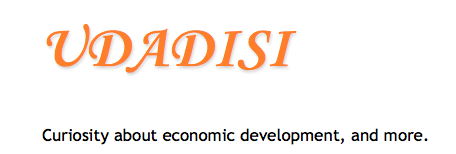From a new paper by Sapienza and Zingales (February 2013):
In 2012 the National Public Radio program Planet Money created a fake presidential platform based on the issues a small sample of economists, with different political views, agreed upon. In focus groups this platform found no support among the public at large. Is this just a feature of the particular selection made by NPR or is it a generalizable feature? If so, is this because ordinary people have not being trained in economics or because economists lack common sense or miss important political considerations?
In this article we try to address these questions. To do so we compare the answers to a common set of policy questions provided by the Economic Expert Panel at the University of Chicago Booth School of Business (EEP) with those provided by the Chicago Booth/Kellogg School Financial Trust Index (FTI), which quarterly interviews a representative sample of the U.S. population. Economists’ opinions differ greatly from those of other ordinary Americans: On average the percentage of agreement with a statement differs 35 percentage points between the two groups. This difference does not seem to be driven by a different composition of the sample.
We also find a large variation in the difference between the two samples across questions. The topics most covered in the economic literature, where economists agree among themselves the most, are also the topics in which their opinions are most distant from those of average Americans. This difference does not seem to be driven by knowledge, since informing people of the expert opinions does not have much impact on the responses of ordinary Americans. The explanation most consistent with our limited evidence is that people do not trust many of the implicit assumptions embedded into the economists’ answers and that economists give them for granted.Table 1 in page 13 presents the categories of agreement and disagreement.

No comments:
Post a Comment